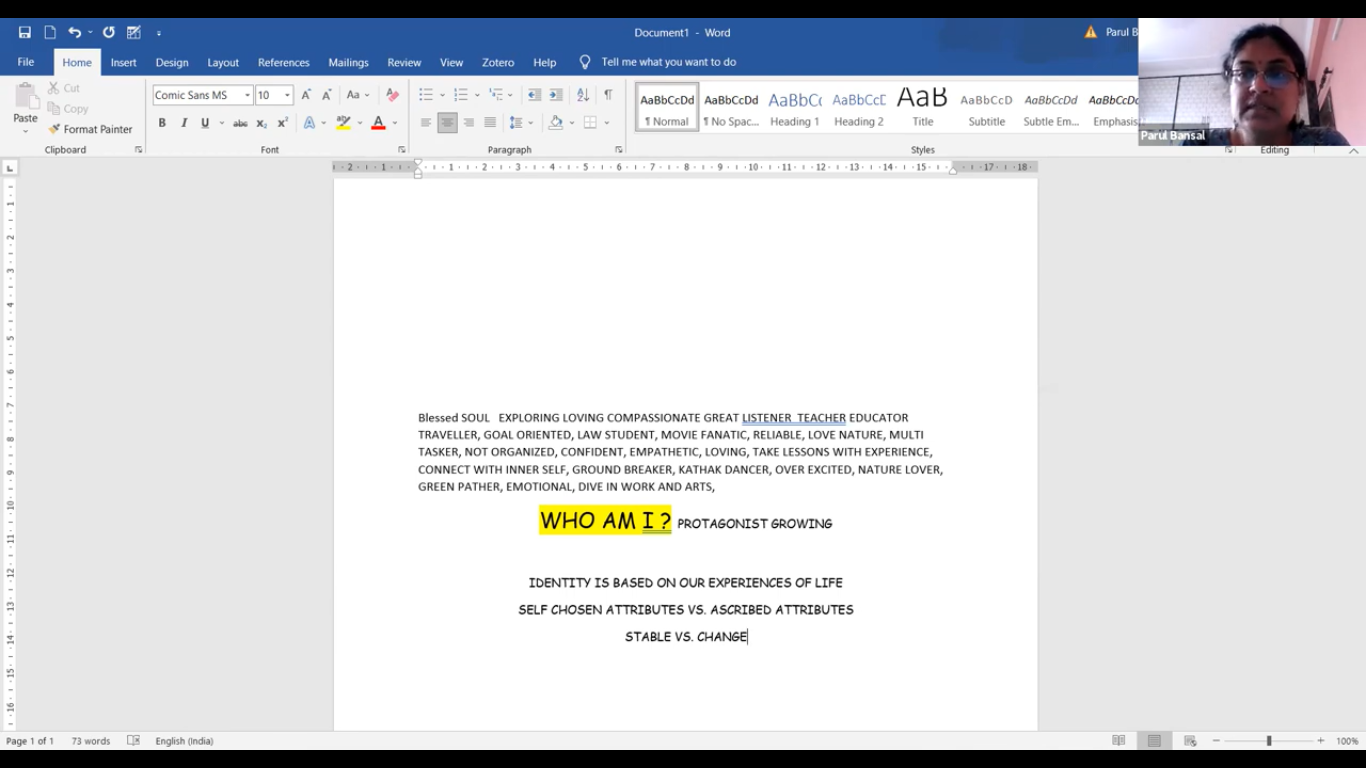One of the important aspects of exploring oneself also required the fellows to understand the ‘markers’ of their Identity, including their sexual identity. Identity does not exist in isolation and is formed when a two-way relationship is established with ‘significant others’ influenced by how one behaves in these relationships based on values, attitudes, and beliefs. To understand Identity from an everyday perspective, Dr. Parul Bansal was invited to facilitate a session this week with the fellows. Dr. Parul Bansal is an Assistant Professor of Psychology at Lady Shri Ram College for Women. Her areas of academic interest include Psychoanalysis, Critical Psychology, and Psychology of Social. Her doctoral work explored identity processes amongst urban Indian youth and was published as a research text titled "Youth in Contemporary India: Images of Identity and Social Change" by Springer.

Identity is a tricky yet very crucial concept. It’s closer to life and is experienced by all of us on an everyday basis. Theoretically, Identity has been one of the most rigorous areas of writing and research in philosophy. There are multiple theories and theorists which have attributed to the study of Identity. However, Dr. Parul Bansal took the approach of understanding Identity from an everyday perspective. During the session, fellows drew their identity maps and understood who they were and what they would like to be. Interestingly, instead of describing themselves from a social lens of caste and class, they identified themselves with their education, professional interest, and characteristics. They also reflected on how their Identity has changed over time. The fellows shared several concerns related to their Identity, but all of them wanted to work towards building a tolerant and respectful space for their family members, friends, and colleagues.

The session was concluded by a video: The danger of a single story by Chimamanda Ngozi Adichie. Novelist Chimamanda Adichie tells the story of how she found her authentic cultural voice -- and warns that if we hear only a single story about another person or country, we risk a critical misunderstanding.